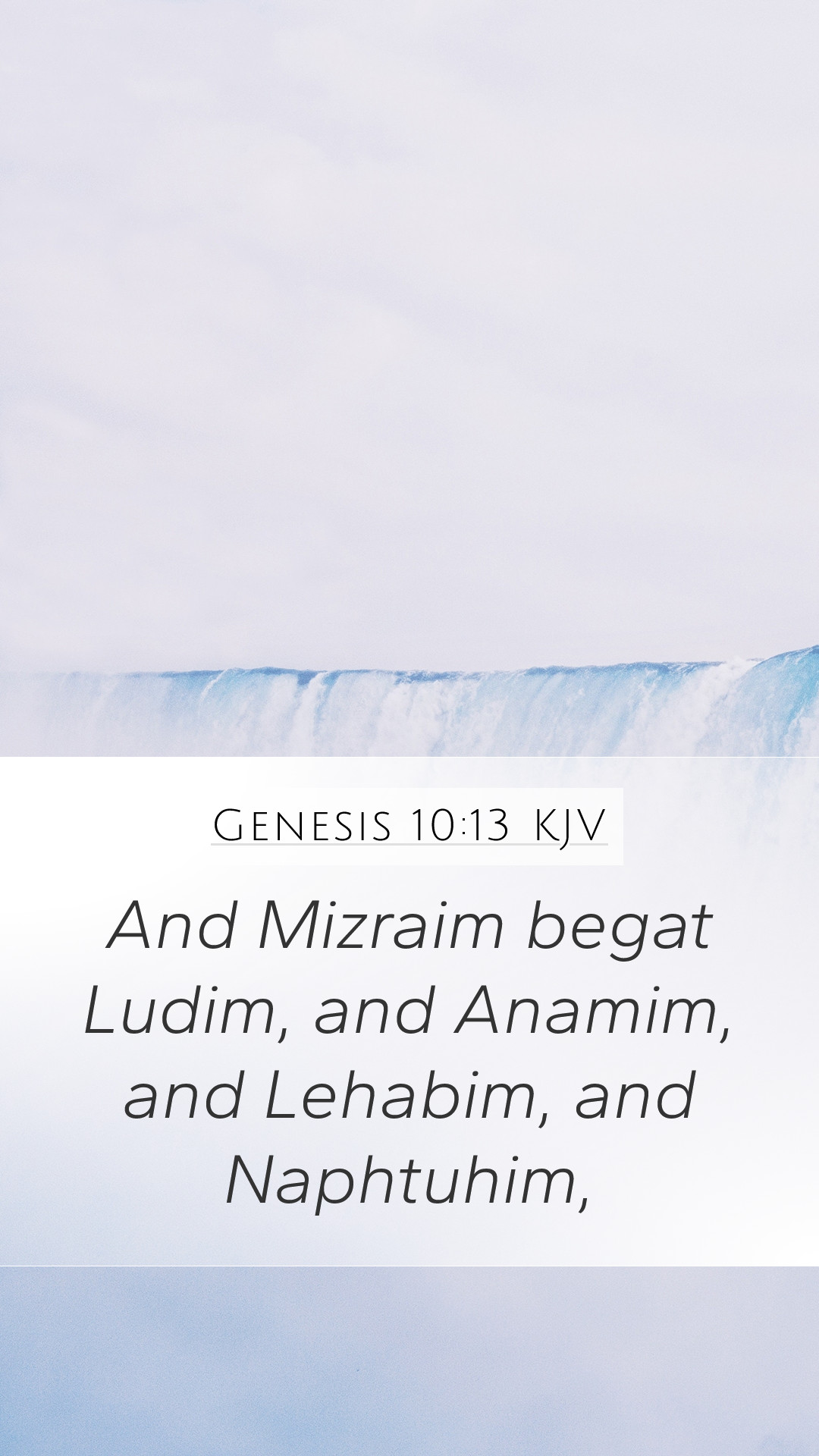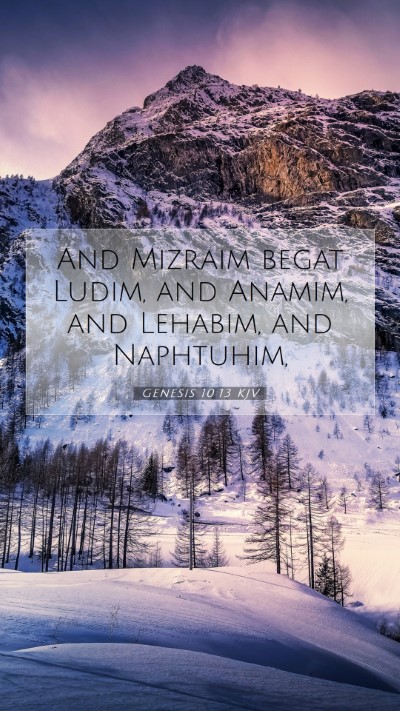Understanding Genesis 10:13
Verse Reference: Genesis 10:13
Genesis 10:13 states: "And Mizraim begat Ludim, and Anamim, and Lehabim, and Naphtuhim." This verse is part of the genealogical record in the Bible, specifically detailing the descendants of Mizraim, who is often identified with Egypt.
Historical Context
The genealogical lists in Genesis serve to connect the patriarchs to the nations that emerged from them. Mizraim, one of the sons of Ham, is a significant figure, as he represents Egypt — a land that plays a crucial role throughout the Scriptures.
Interpretation from Public Domain Commentaries
Matthew Henry's Commentary
Matthew Henry emphasizes the importance of understanding the genealogies in Scripture as revealing the origins of nations. He notes that the mention of Mizraim and his descendants serves as a reminder of God's sovereign hand in the creation of nations and their subsequent histories. Each named descendant represents a group that contributed to the ethnic and cultural diversity of the region we now know as North Africa and parts of the Middle East.
Albert Barnes' Notes on the Bible
Albert Barnes provides insights into the specific descendants listed in this verse. He points out that the names mentioned (Ludim, Anamim, Lehabim, Naphtuhim) represent various tribes or people groups associated historically with Egypt. Each tribe had its unique characteristics, contributing to the broader tapestry of Egypt's identity. Barnes highlights that these genealogical lists, while seeming obscure at first, provide essential data for understanding the historical relationships and migration patterns of ancient peoples.
Adam Clarke's Commentary
Adam Clarke elaborates on the significance of Mizraim in Scripture. He connects Mizraim's lineage with the Egyptian cultural and religious practices, discussing how these descendants likely played a role in the early forms of Egyptian polytheism and civilization. Clarke's commentary emphasizes that the genealogies are not just lists of names but are deeply intertwined with the history of Israel and the spiritual narrative of the Bible.
Key Themes and Applications
- The Origins of Nations: Genesis 10:13 is essential for understanding how nations were formed and evolved from the descendants of Noah. This reminds readers of God's overarching plan for humanity.
- Cultural Diversity: The various tribes that emerged from Mizraim signify the rich cultural diversity and complex interactions among nations, inviting reflection on how different cultures contribute to the world today.
- The Continuity of God's Plan: The genealogies show the continuity of God’s promise and providence, revealing that every nation, including Egypt, plays a part in the divine story of salvation.
Bible Verse Meanings and Understanding
The understanding of Genesis 10:13 goes beyond mere names; it requires reflection on how these early tribes influence biblical history and the eventual arrival of Christ. Recognizing the significance of genealogies in Scripture helps appreciate the meticulous nature of biblical records and their spiritual implications.
Cross References
- Exodus 1:1-14: Discusses the descendants of Jacob in Egypt, showing the continuation of the Israelite line in contrast to Egypt's lineage.
- Isaiah 19:1-3: Prophecies concerning Egypt further explore the relationship between Israel and Egypt.
- Ezekiel 30:1-5: Contains prophecies against Egypt, shedding light on its geopolitical importance.
Conclusion
Genesis 10:13 serves as a vital link in understanding the biblical narrative. Engaging with public domain commentaries provides readers with a deeper comprehension of the significance of genealogies in the Bible. This reflection enriches Bible study groups, online Bible study, and individual learning, equipping believers to apply these ancient truths in contemporary life.


